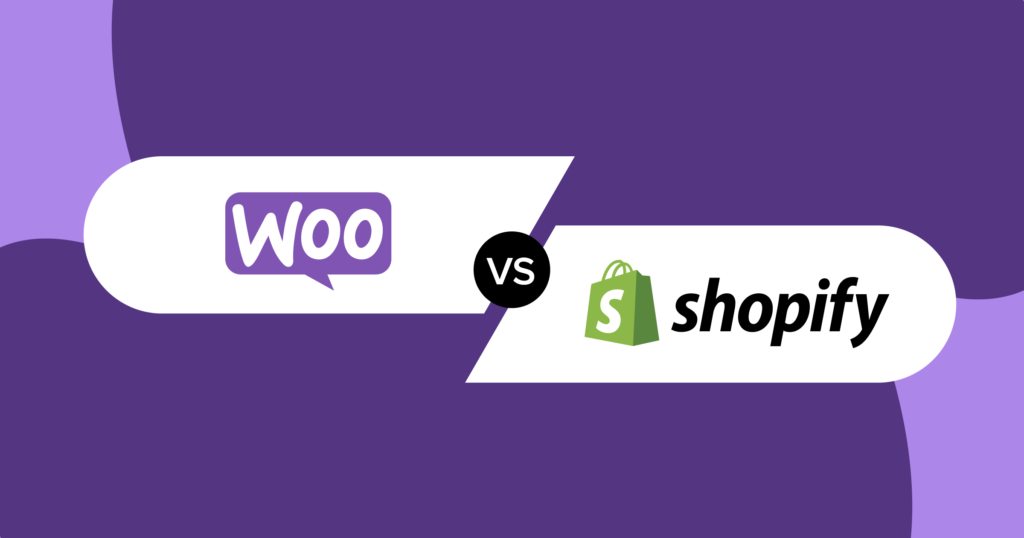Shopify vs. WooCommerce is a question every aspiring e-commerce entrepreneur faces when choosing the right platform for their online store. Both platforms offer robust features, but their differences can significantly impact how you build, manage, and grow your business. In this guide, we’ll dive deep into their strengths, weaknesses, and key distinctions to help you decide which one aligns with your goals.
Table of Contents
Cost Comparison: What’s the Real Investment?
Cost Comparison: What’s the Real Investment?
One of the first considerations in the Shopify vs. WooCommerce debate is cost. Shopify operates on a subscription model, offering plans ranging from $29 to $299 per month, depending on your needs. This pricing includes hosting, security, and a range of tools to get your store up and running seamlessly.
WooCommerce, on the other hand, is a free WordPress plugin. While it’s free to install, you’ll need to pay for hosting, a domain, and any additional plugins or extensions. Depending on your chosen hosting provider, this can range from $10 to $200 monthly. While WooCommerce offers greater flexibility in cost, it can require more technical know-how to manage your expenses effectively. Shopify vs. WooCommerce shines in this comparison depending on your budget and technical skills.
Ease of Use: Simplified vs. Customizable
When it comes to user-friendliness, Shopify is the clear winner for beginners. Its drag-and-drop interface and ready-to-use templates make it easy to create a professional-looking store without any coding skills. Everything from setting up products to managing inventory is intuitive and streamlined.
WooCommerce, being a WordPress plugin, offers unparalleled customization. However, the setup process is more complex and requires a basic understanding of WordPress. Shopify vs. WooCommerce becomes a matter of preference here—ease of use with Shopify or customization flexibility with WooCommerce.
Features and Functionality: Comparing the Essentials
Both Shopify and WooCommerce come packed with features, but the way they deliver them differs:
- Shopify: Includes built-in tools for payment processing, shipping, and marketing. The Shopify App Store further expands functionality with thousands of apps for every business need.
- WooCommerce: Offers endless possibilities through WordPress plugins. From SEO tools to advanced analytics, you can tailor your store to meet precise requirements. However, this flexibility can come with a steeper learning curve. Shopify vs. WooCommerce is a debate of built-in simplicity versus extensive customization.
Design and Customization: Creativity vs. Convenience
Design plays a critical role in capturing your audience’s attention. Shopify provides an array of professionally designed templates that are mobile-optimized and easy to tweak. While customization options exist, they’re somewhat limited compared to WooCommerce.
WooCommerce, on the other hand, leverages WordPress themes, giving you access to thousands of design options. For those with coding skills or access to a developer, the sky’s the limit in terms of customization. Shopify vs. WooCommerce offers a choice between convenient design templates and the limitless creativity of WordPress themes.
Scalability: Growing with Your Business
For small businesses, both Shopify and WooCommerce are excellent options, but their scalability differs as your business grows. Shopify’s infrastructure is built for scalability, handling traffic spikes and large inventories effortlessly. With advanced plans, Shopify provides additional features to support larger businesses, such as advanced reporting and shipping discounts.
WooCommerce’s scalability depends on your hosting provider. While it’s capable of supporting large-scale operations, maintaining optimal performance during high traffic can require significant technical expertise and investment in hosting upgrades.
SEO and Marketing Capabilities
In the Shopify vs. WooCommerce battle, WooCommerce has a slight edge in SEO capabilities due to its integration with WordPress. Plugins like Yoast SEO make it easier to optimize every aspect of your site for search engines.
Shopify’s SEO features are solid but somewhat restricted in comparison. That said, Shopify excels in marketing with built-in tools like email campaigns, discount codes, and abandoned cart recovery. For businesses prioritizing SEO over marketing automation, WooCommerce might be the better option.
Support and Maintenance: Who Has Your Back?
Shopify provides 24/7 customer support through live chat, email, and phone. This level of support is invaluable for entrepreneurs who need quick solutions to technical issues or guidance while setting up their store. The platform’s robust knowledge base includes detailed articles, tutorials, and troubleshooting guides to empower users to solve common problems independently. Additionally, Shopify’s community forums foster interaction between store owners, offering another layer of support through shared experiences and advice.
WooCommerce, by contrast, takes a more decentralized approach to support. The platform relies on community-driven resources, including forums, blogs, and official documentation, which can be incredibly helpful but may not always provide immediate answers. While hosting providers or third-party developers often offer additional assistance, the responsibility for maintaining your store’s performance, updates, and security ultimately falls on you. For users with technical expertise, WooCommerce’s approach can be empowering. However, for those less comfortable managing these tasks, it might feel overwhelming compared to Shopify’s all-in-one support system. Shopify vs. WooCommerce truly showcases a divide between convenience and independence when it comes to support.
Making the Decision: Shopify vs. WooCommerce
Choosing between Shopify vs. WooCommerce ultimately depends on your priorities and skill set. Shopify is ideal for entrepreneurs seeking an all-in-one, hassle-free solution. Its simplicity and reliability make it a great choice for beginners or businesses looking to scale quickly.
WooCommerce is perfect for those who value flexibility and customization. If you have the technical expertise or resources to manage a WordPress site, it offers unmatched opportunities to create a unique e-commerce experience tailored to your needs. Shopify vs. WooCommerce highlights how each platform aligns with different priorities, ensuring you can make the most informed decision for your e-commerce journey.
For further insights into building a successful online store, check out this comprehensive guide on e-commerce platforms. Whether you choose Shopify or WooCommerce, both platforms provide the tools to turn your vision into reality.

Extra Reading
If you’re interested in exploring ways to enhance your e-commerce operations beyond choosing the right platform, check out our blog titled “Ecommerce Automation: API Integration to Streamline Your Business”. This insightful post dives into how API integration can simplify and automate critical tasks like inventory management, order processing, and customer communication. Whether you choose Shopify or WooCommerce, leveraging automation through APIs is a game-changing strategy to optimize your store’s efficiency and scalability. By combining the right platform with powerful automation tools, you can unlock new levels of productivity and focus on growing your business.


